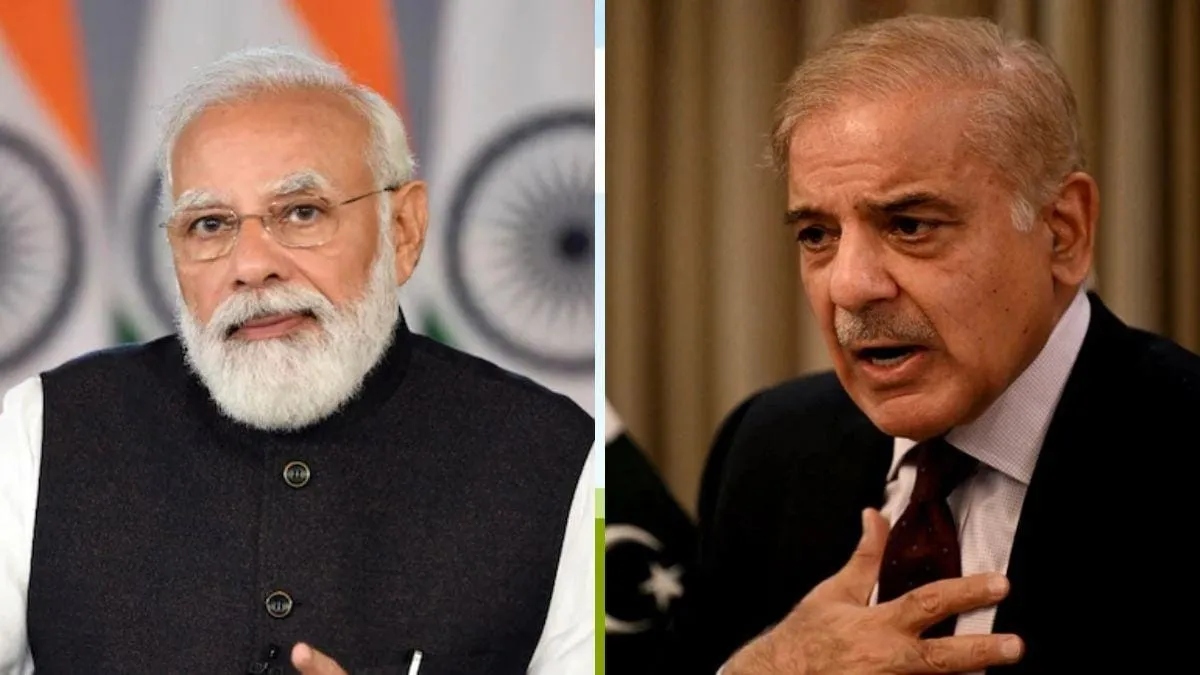 |
|
The article details a period of heightened tensions between India and Pakistan following a terrorist attack in Pahalgam, Jammu and Kashmir. This attack, reportedly carried out by a Pakistan-based terror outfit, resulted in the tragic loss of 26 Indian tourists, igniting widespread outrage and calls for retaliation within India. The severity of the attack prompted a significant response from the Indian government, escalating the already fragile relationship between the two nuclear-armed neighbors. The situation unfolded with a series of actions and reactions, each contributing to the increasing instability in the region and raising concerns about a potential full-scale conflict. The narrative presented in the article focuses on Pakistan's perceived fear of a retaliatory strike by India, specifically the possibility of India using BrahMos missiles to target Pakistani nuclear facilities. This fear, according to the article, drove Pakistan to seek intervention from the United States, highlighting the country's perceived vulnerability and lack of confidence in its own defensive capabilities. The article emphasizes the urgency with which Pakistan approached the US, suggesting a state of panic within the Pakistani government and military establishment. The request for US mediation underscores the historical context of US involvement in India-Pakistan relations, often acting as a mediator or facilitator in times of crisis. However, India's firm rejection of third-party mediation marks a shift in its foreign policy approach, signaling a desire to handle bilateral issues directly with Pakistan, without external interference. This stance reflects India's growing confidence in its diplomatic and military capabilities, as well as a determination to address the issue of cross-border terrorism on its own terms. The Indian government's insistence on direct talks between the Directors General of Military Operations (DGMOs) of both countries demonstrates a preference for direct communication and negotiation, aiming to de-escalate the situation through military-to-military channels. The DGMOs' conversation, leading to a ceasefire agreement, represents a temporary reprieve from the escalating tensions, providing a window for further dialogue and potential resolution of the underlying issues. The article also sheds light on India's new counter-terrorism policy, which involves proactively neutralizing terrorists even across the border, if necessary. This policy shift signals a more aggressive and assertive approach to combating terrorism, indicating a willingness to take decisive action to protect India's national security interests. The emphasis on not violating the ceasefire and refraining from military actions along the Line of Control (LoC) suggests a mutual understanding of the potential consequences of further escalation, highlighting the need for restraint and responsible behavior from both sides. However, India's clear statement that it will continue to act decisively against terrorism originating from across the border serves as a warning to Pakistan, reiterating India's commitment to combating terrorism and its willingness to take necessary measures to address the threat. The context of the India-Pakistan conflict is deeply rooted in historical, political, and territorial disputes, particularly the Kashmir issue. The ongoing tensions between the two countries have significant implications for regional stability and international security, given their nuclear capabilities. The potential for miscalculation or escalation remains a constant concern, requiring careful management of the relationship and proactive efforts to address the underlying causes of conflict. The role of external actors, such as the United States, is also crucial in promoting dialogue and facilitating peaceful resolution of disputes. The international community has a vested interest in maintaining stability in the region and preventing any further escalation of tensions between India and Pakistan. The article provides a snapshot of a specific moment in the ongoing India-Pakistan relationship, highlighting the complex dynamics and challenges involved in managing this volatile relationship. It underscores the importance of communication, diplomacy, and responsible behavior in preventing conflict and promoting peace in the region. The situation remains fluid and unpredictable, requiring constant vigilance and proactive efforts to address the underlying issues and build trust between the two countries. The article's focus on Pakistan's fear of a BrahMos strike underscores the strategic importance of this missile system in India's defense arsenal. The BrahMos, a supersonic cruise missile, is jointly developed by India and Russia and is considered one of the most advanced and potent missile systems in the world. Its accuracy, speed, and maneuverability make it a formidable weapon, capable of striking targets with precision and effectiveness. The mere mention of the BrahMos missile in the context of a potential retaliatory strike highlights its deterrent effect and its role in shaping the strategic calculus between India and Pakistan. The article also touches upon the issue of cross-border terrorism, which has been a major source of tension between India and Pakistan for decades. India has repeatedly accused Pakistan of supporting and sponsoring terrorist groups that operate within its territory, while Pakistan denies these allegations. The issue of cross-border terrorism remains a major obstacle to improving relations between the two countries and resolving other outstanding disputes. The article suggests that India's new counter-terrorism policy is aimed at addressing this issue more effectively, signaling a willingness to take proactive measures to disrupt terrorist activities and protect its national security interests. The ongoing tensions between India and Pakistan underscore the need for a comprehensive approach to addressing the root causes of conflict, promoting dialogue and cooperation, and building trust between the two countries. This requires addressing the underlying political, economic, and social issues that contribute to instability and fostering a climate of mutual respect and understanding. The international community can play a constructive role in supporting these efforts, providing assistance and encouragement to both countries to engage in meaningful dialogue and resolve their differences peacefully.
